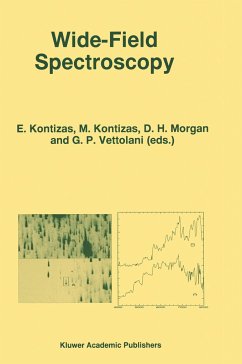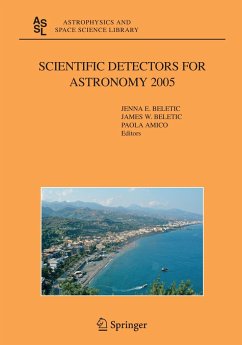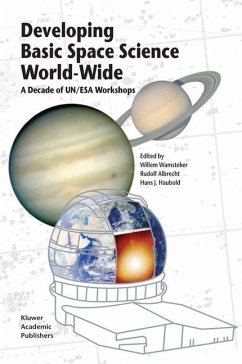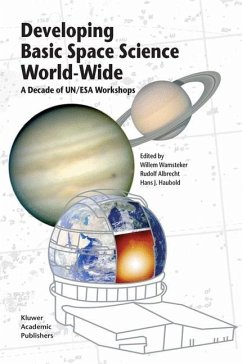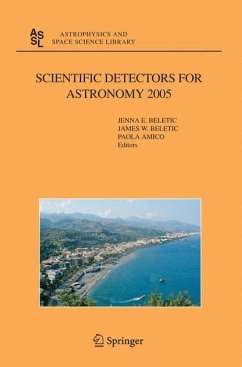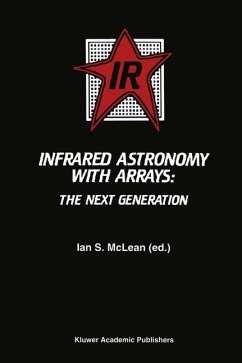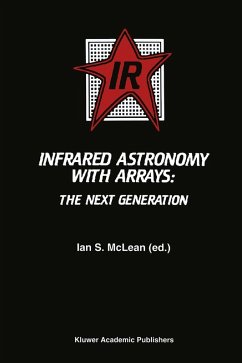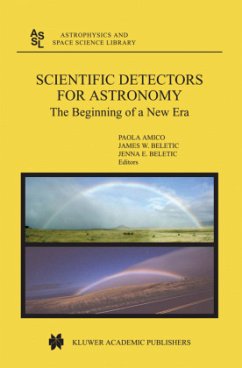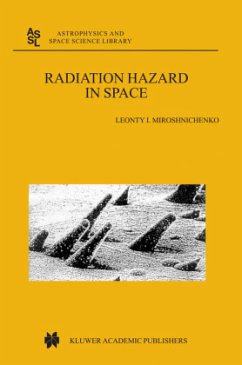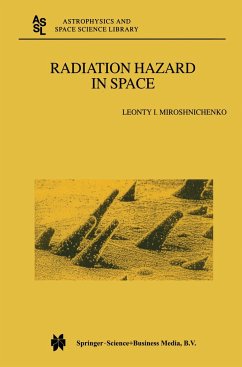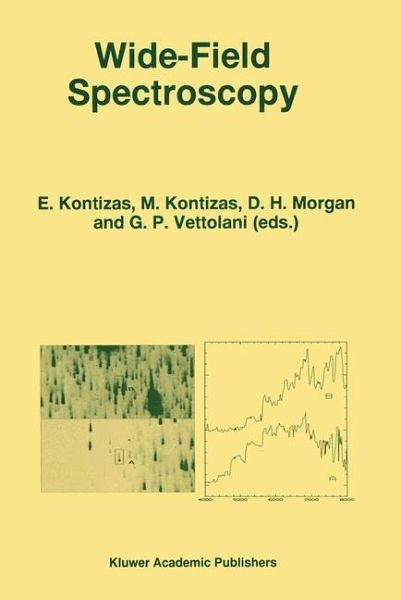
Wide-Field Spectroscopy
Proceedings of the 2nd Conference of the Working Group of IAU Commission 9 on "Wide-Field Imaging" held in Athens, Greece, May 20-25, 1996
Herausgegeben: Kontizas, E.; Kontizas, M.; Morgan, D. H.; Vettolani, G. P.

PAYBACK Punkte
19 °P sammeln!
E. KONTIZAS Astronomical Institute National Observatory of Athens P. O. Box 20048 Athens GR-1181O GREECE The international conference on "Wide-Field Spectroscopy" and its sub ject matter were agreed during the general assembly of the International Astronomical Union (IAU) in August 1994 by the Working Group of Com mision 9 "Wi de-Field Imaging". This meeting gave an opportunity to world experts on this subject to gather in Athens, in order to discuss the cur rent exploitation and the impending opportunities that exist in the area of multi-object spectroscopy, with particular emphasis on: 1. As...
E. KONTIZAS Astronomical Institute National Observatory of Athens P. O. Box 20048 Athens GR-1181O GREECE The international conference on "Wide-Field Spectroscopy" and its sub ject matter were agreed during the general assembly of the International Astronomical Union (IAU) in August 1994 by the Working Group of Com mision 9 "Wi de-Field Imaging". This meeting gave an opportunity to world experts on this subject to gather in Athens, in order to discuss the cur rent exploitation and the impending opportunities that exist in the area of multi-object spectroscopy, with particular emphasis on: 1. Astronomical instruments, data acquisition, processing and analysis techniques. 2. Astrophysical problems best tackled through wide-field, multi-object spectroscopy. The new fibre optic technology offers an important tool for the advancement of basic research and the development of industrial applications. Astronom ical spectroscopy is a field of astronomy which has contributed much to the advancement of fundamental physics. The spectra of hot stars have been used to determine the well-known Balmer formula for the wavelength of hydrogen lines, in the late 19th century. Since then, spectroscopy has made enormous progress in stellar atmosphere studies, in kinematics, and in the detection of high redshifts in the Universe. The traditional techniques of obtaining wide-field spectroscopic data are based on slitless spectroscopy (objective prism). Several observations, world wide, make use ofthese tech niques in order to obtain information on the spectral properties of objects in large areas of the sky.





